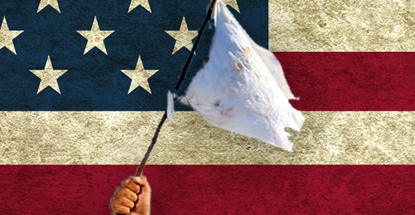 New York legislators will hold an exploratory hearing on the merits of online poker on September 9.
New York legislators will hold an exploratory hearing on the merits of online poker on September 9.
The hearing is the work of State Senator John Bonacic, author of the state’s most recent online poker legislation. Details of Bonacic’s S 5302 bill can be found here, but there’s not much point in familiarizing yourself with its contents, because there’s simply not enough political will to pass the bill this year.
Bonacic admitted as much in a conversation with Gambling Compliance, saying that he would use the hearing to convince the Senate Racing, Gaming and Wagering Committee – which Bonacic chairs – to “look seriously” at passing online poker legislation in 2016.
In the meantime, Bonacic has invited representatives from his state’s casinos, racinos and off-track betting parlors to discuss “the pros and cons of moving the legislation.” Bonacic has also summoned reps from Caesars Entertainment and MGM Resorts, both of which are active participants in the regulated online gambling market across the border in New Jersey.
CALIFORNIA, PENNSYLVANIA NOT LOOKING GOOD
The prognosis for 2015 appears similarly bleak in the two states that appeared closest to joining New Jersey, Nevada and Delaware in the regulated online game.
In Pennsylvania, the impasse between Gov. Tom Wolf and the GOP-controlled legislature means the state has now gone nearly 50 days without a new budget. Multiple online gambling bills have been proposed as a way to raise new revenue without raising taxes but gambling matters have taken a back seat to issues like education funding and pension reform.
Wolf is scheduled to have another meeting with legislators on Wednesday in a bid to break the deadlock. While online gambling hasn’t been explicitly ruled out, most observers have resigned themselves to trying again in 2016.
Out in California, the legislature will close out its current session on Sept. 11 and the state’s bickering stakeholders appear no closer to resolving their differences. On Monday, California gaming scribe Dave Palermo quoted Capitol Hill sources saying that while anything was possible, herding all the online poker cats in the next three weeks would be “a herculean task.”
Palermo’s source noted that even if the stakeholders were to reach some accord, the state had bigger matters on its plate, such as wildfires and crippling drought. Coupled with the fact that there’s “no groundswell of support” from the state’s online poker players, the issue simply “doesn’t register as being critical on the governor’s agenda.”
Should neither state manage to get ‘er done this year, we’ll be looking at a minimum three-year gap since a US state authorized online gambling within its borders. Undoubtedly, many observers figured that more states would have followed the three pioneers’ leads by this point, while more rational observers predicted the process would be long and very, very slow.
